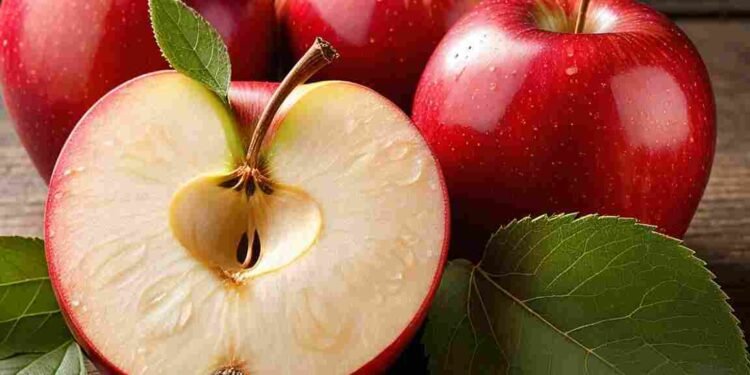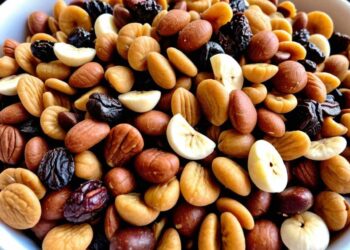Yes, apple juice can help with dehydration by providing fluids and natural sugars, but it’s not the best option due to its low electrolyte content. Discover better fruit juices for hydration!
Introduction:
Dehydration happens when your body does not have enough water. It can make you feel tired, dizzy, or even cause headaches. Many people wonder if drinking apple juice can help with dehydration. Apple juice is tasty and refreshing, but is it the right choice to rehydrate your body? This article explores whether apple juice is good for dehydration, its benefits, and when it might not be the best option.
Understanding Dehydration:
Dehydration occurs when the body loses more fluids than it takes in. Common causes include:
- Not drinking enough water
- Excessive sweating
- Vomiting or diarrhea
- Fever
- Hot weather or exercise
When dehydrated, your body needs fluids to function properly. Water is the best option, but some people prefer flavored drinks like apple juice.
Nutritional Content of Apple Juice:
Apple juice contains:
- Water – Helps hydrate the body.
- Natural sugars – Provides energy.
- Vitamins and minerals – Contains vitamin C, potassium, and antioxidants.
- Electrolytes – Helps balance fluids in the body.
Since apple juice is mostly water, it can help with hydration. However, its sugar content must be considered.
Benefits of Apple Juice for Hydration:
- High Water Content – Apple juice is made up of about 88% water, making it a good source of fluids.
- Contains Electrolytes – Potassium in apple juice helps restore lost minerals, especially after sweating or illness.
- Easier to Drink Than Water – Some people, especially children, find apple juice more appealing than plain water.
- Energy Boost – The natural sugars in apple juice provide quick energy, which can be helpful when feeling weak due to dehydration.
- Mild on the Stomach – Apple juice is gentle and can be easier to drink for people with an upset stomach.
When Apple Juice May Not Be the Best Choice:
While apple juice can help with hydration, it may not be the best option in certain situations:
- High Sugar Content – Too much sugar can draw water into the intestines, making dehydration worse, especially in cases of diarrhea.
- Lack of Sodium – Apple juice does not have enough sodium, an important electrolyte that helps retain water in the body.
- Blood Sugar Spikes – People with diabetes should be cautious, as apple juice can raise blood sugar levels quickly.
- Not as Effective as Oral Rehydration Solutions – Special electrolyte drinks (like sports drinks or rehydration solutions) are better for severe dehydration.
Best Way to Use Apple Juice for Hydration:
If you choose apple juice for hydration, here are some tips:
- Dilute It with Water – Mixing apple juice with equal parts water reduces sugar content and makes it more hydrating.
- Drink It Alongside Water – Don’t rely only on apple juice; drink water as well.
- Use It for Mild Dehydration – If dehydration is severe, an electrolyte solution is better.
- Avoid Drinking Too Much – Too much apple juice can cause stomach upset.
Apple Juice vs. Other Hydration Options:
| Drink | Water Content | Electrolytes | Sugar Content |
| Water | 100% | No | No |
| Apple Juice | 88% | Some (Potassium) | High |
| Sports Drinks | 90% | Yes | Moderate |
| Coconut Water | 95% | Yes | Low |
| Oral Rehydration Solution | 95% | Yes | Low |
Water is always the best choice, but if you prefer something with flavor, diluted apple juice can be a good alternative.
Can you drink apple juice for dehydration?
Yes, you can drink apple juice for dehydration, but it’s not the best option. Apple juice contains water and natural sugars, which can help replenish fluids. However, it is relatively high in sugar and low in electrolytes like sodium and potassium, which are essential for proper rehydration. If you’re dealing with severe dehydration, an electrolyte-rich drink like oral rehydration solutions (ORS) or coconut water would be more effective.
Jeremy Strohmeyer – A Crime That Shook the Nation!
Which Fruit Juice Is Best for Dehydration?
The best fruit juices for dehydration are those that have a good balance of water, electrolytes, and natural sugars. Some great options include:
- Coconut water – Naturally rich in electrolytes like potassium and magnesium.
- Watermelon juice – High water content and contains essential minerals.
- Orange juice – Provides vitamin C and potassium but should be diluted to reduce acidity.
- Pomegranate juice – Contains antioxidants and electrolytes.
- Cucumber juice – Hydrating with added minerals.
If you’re mildly dehydrated, any of these juices can help, but for severe dehydration, an electrolyte-replenishing drink is better.
Is Apple Good for Dehydration?
Yes, apples can be good for dehydration since they have a high water content (around 86%). Eating apples can provide hydration, fiber, and essential nutrients. However, they don’t contain high amounts of electrolytes like potassium or sodium, so they should be complemented with other hydrating foods or drinks.
Why Do Hospitals Give You Apple Juice?
Hospitals often offer apple juice because:
- It is gentle on the stomach and can help prevent nausea.
- It provides a quick source of energy through natural sugars.
- It can rehydrate patients mildly, especially those who have had surgery or are unable to eat solid food.
- It is well-tolerated by most people, including children.
Conclusion:
Apple juice can help with hydration because it contains a lot of water and some electrolytes. However, its high sugar content makes it less effective than water or special rehydration solutions. If you want to use apple juice for hydration, dilute it with water and drink it in moderation. For mild dehydration, it can be a refreshing option, but for severe dehydration, water and electrolyte drinks are better choices. Always listen to your body and stay hydrated in the best way possible!










Discussion about this post